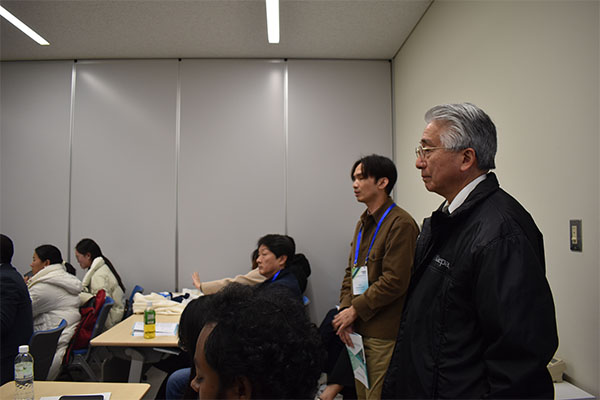

460 views||Release time: Jan 10, 2025
In today’s globalized academic landscape, presenting your research at international academic conferences is one of the most effective ways to gain recognition, collaborate with peers, and expand your professional network. These conferences offer an unparalleled opportunity to engage with experts from diverse fields, showcase your work, and stay ahead of emerging trends in your area of study. Here’s why participating in international academic conferences in 2025 should be a priority for researchers worldwide.

Global Exposure and Recognition
International academic conferences bring together scholars, researchers, and professionals from all over the world. Presenting at such events enhances the global visibility of your research, making it accessible to a broader audience. The recognition you gain from presenting at these high-profile conferences can significantly enhance your academic reputation.
Networking with Global Experts
One of the greatest advantages of international conferences is the opportunity to network with top experts and researchers from different countries. These events allow you to share ideas, exchange knowledge, and build connections that can lead to future collaborations, joint research projects, and career opportunities. Networking with a global audience can also help you gain fresh perspectives and insights for your work.
Access to Cutting-Edge Research
International conferences are often the stage for presenting cutting-edge research and innovations. Attending these events allows you to stay updated on the latest trends, breakthroughs, and methodologies in your field. Exposure to groundbreaking work can inspire new ideas for your own research and give you a competitive edge in your academic pursuits.
Enhance Your Academic CV
Participating in international conferences is an important achievement that can significantly enhance your academic CV. Many universities, funding agencies, and research institutions consider conference presentations as a key indicator of scholarly contribution. This can improve your chances of securing research grants, academic positions, and collaborations.
Increase Citation Potential
Papers presented at international academic conferences are often published in prestigious conference proceedings, which are indexed in major citation databases. This gives your research greater visibility and increases the likelihood of it being cited by other researchers, contributing to your academic impact and increasing your citation count.
Use Conference Listing Platforms
Websites like iconf.com offer a curated list of international academic conferences across various disciplines. These platforms provide detailed information on conference themes, submission deadlines, and guidelines, making it easier for you to find the right conference to submit your work.
Search by Research Area
Many conference platforms allow you to search for events by your specific research area. Whether you’re in the fields of science, engineering, humanities, or social sciences, you can find conferences that align with your interests and ensure that your research reaches the right audience.
Sign Up for Alerts
Stay informed about new opportunities by signing up for conference alerts. Platforms like iconf.com allow you to subscribe to personalized email alerts based on your research area, ensuring you never miss a conference that fits your expertise.
Explore Conference Call for Papers (CFP)
Most international conferences issue a Call for Papers (CFP) prior to the event. Review the CFPs for these conferences to determine whether their themes and topics align with your research. Submitting to conferences with well-defined themes increases the chances of acceptance and ensures your work contributes meaningfully to the event.
Craft a Compelling Abstract
Your abstract serves as the first impression of your work. It should succinctly highlight your research objectives, methodology, key findings, and the significance of your study. A clear, well-structured abstract increases the likelihood of your paper being accepted to the conference.
Adhere to Submission Guidelines
Every conference has its own submission guidelines, including paper formatting, word limits, and document type (e.g., PDF, Word). Make sure you read and follow these guidelines carefully to avoid any issues during the submission process. Adhering to the guidelines demonstrates professionalism and increases your chances of acceptance.
Prepare for the Presentation
Once your paper is accepted, preparing for your presentation is essential. Create clear, engaging slides that complement your research findings, and practice your delivery to ensure you convey your ideas confidently and concisely. A well-delivered presentation can leave a lasting impression on your audience and conference organizers.
Engage with the Audience
During the conference, actively engage with other researchers and attendees. Ask questions, participate in discussions, and exchange ideas. Building connections with your peers can lead to future collaborations, career opportunities, and valuable feedback on your work.
International academic conferences offer invaluable opportunities for academic growth, networking, and research visibility. Presenting your work at these events not only advances your career but also places you at the forefront of innovation and scholarly exchange.
To find the best international academic conferences in 2025, visit iconf.com. The platform offers an up-to-date list of conferences, submission guidelines, and deadlines, making it easier for you to plan and submit your research to the right events.